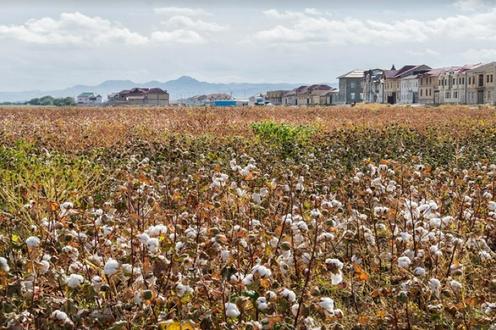43 officials and managers were fined in Uzbekistan over the course of 2019 for forcing their subordinates to take part in cotton-picking. The list of those subject to penalties was published on the website of the Ministry of Employment and Labour Relations (in Uzbek).
Among them were two district hokims – Rustam Sagdullayev of Kitob District in the Qashqadaryo region and Jurabek Rakhimov of Koshkupir District in the Khorezm region.
Five deputy district hokims were also included in the list, along with six middle school headteachers (five of them from the autonomous Republic of Karakalpakstan), bank branch directors, chief physicians and others.
They were charged under article 51 (”Administrative coercion to work”) of the Administrative Responsibilty Code and fined between 10 and 30 base units (BUs; one BU currently stands at 223,000 Soms or $23). It should be noted that, as of January 2020, the penalty for forced labour was increased to 50-100 base units.
In 2018, the Uzbek government passed a decree banning the coercion of an institution’s employees to carry out construction and repair work, agricultural work and other forms of public work. Nevertheless, government officials and the heads of many institutions continue to ignore the new regulations.
Thus, in the Fergana region in July 2019, thousands of state employees were sent out to perform unpaid public works (known as a hashar), and workers at a college in Margilan were forced to help out on a building site. In May 2019, the management of a hospital in the Chinaz district of Tashkent region ordered nurses to carry out gardening work.
In the Namangan area, schoolteachers were forced to take part in the renovation of school premises, and managers at the Tashkent region electricity grid ordered their subordinates to do cleaning work alongside a major road.










